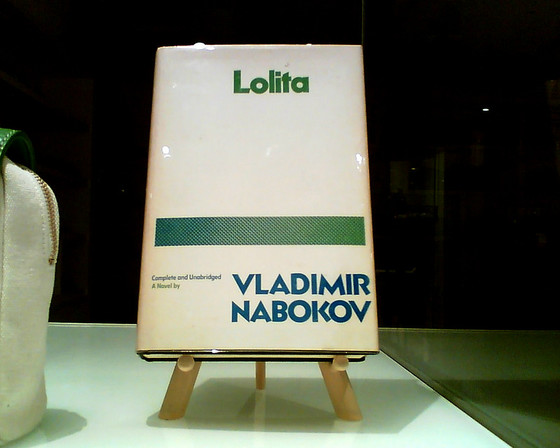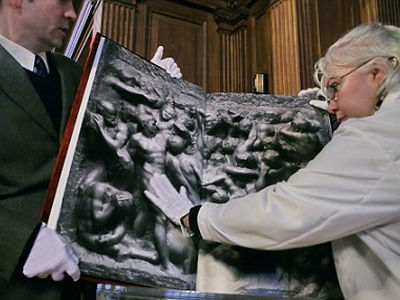What was the regulation of 'obscene' that occurred when 'Lolita' depicting girlish love was published, and the struggle to promote its publication as 'excellent literature'?

Russian-born author Vladimir Nabokov's novel 'Lolita' was published in France in 1955 and depicts the relationship between pedophile Humbert Humbert and the girl Humbert loves, Dolores Hayes. It later became a bestseller in some countries, and was banned as pornographic literature in five countries. Best-selling author and journalist
How Obscenity Laws Nearly Stopped Nabokov's Lolita from Being Published ‹ Literary Hub
https://lithub.com/how-obscenity-laws-nearly-stopped-nabokovs-lolita-from-being-published/

'Lolita' was originally published in France in September 1955. Olympia Publishing, which published 'Lolita,' was a company known for its pornography, but also had a track record of publishing challenging literary titles. Harding points out that although the number of printed copies was 5000, 'Lolita' received little attention at the beginning of publication.

by
A few months after its French publication, a small number of copies of 'Lolita' were 'smuggled' into England. A copy of 'Lolita' went into the hands of renowned 20th century British novelist Graham Greene and was favorably reviewed in the Sunday Times, to which Mr. Green contributed. On the other hand, immediately after the review, the tabloid Sunday Express published an article that severely criticized ``Lolita'' as ``completely unrestricted pornography,'' after which the British Home Office seized all copies of ``Lolita'' in the country. I am commanding you to do so.
Among such regulations, the editor George Weidenfeld is known to have contributed to the publication of 'Lolita'. Mr. Weidenfeld said that when he read 'Lolita' for the first time, he thought, 'I want to publish it.' There was opposition from those around me and legal issues, but at the same time the British Labor Party was moving in the direction of passing a new ``obscenity law'' in parliament, and the new bill would cover works whose publication had been suspended by the government. , publishers were able to assert the literary value of a book by requesting testimonies from authors and scholars. Although there was still a risk of huge losses due to suspension of publication, Mr. Weidenfeld believed that 'Lolita' was worth it.

by
Around the summer of 1958, after consultation with his lawyer and the consent of his business partner Nigel Nicholson, Mr. Weidenfeld obtained permission from Mr. Nabokov, who lives in New York, to publish the book. In a letter to Nabokov, Mr. Weidenfeld wrote, ``I would like to take this opportunity to express how inspired and moved my colleagues and I are by this book, and how much I hope this book will achieve dignity and success in this field.'' Let me tell you how determined we are to have the book released as a complete collection,'' he said, expressing how impressed he was with ``Lolita.'' An agreement was reached in November of the same year, and Mr. Nabokov wrote in a letter that ``an English version of ``Lolita'' is on the way.''
Rumors began to circulate that Mr. Weidenfeld was planning to publish ``Lolita,'' and as a result, Edward Heath , who later became Prime Minister of the United Kingdom, recommended that the publication be stopped, and the then Attorney General told Mr. Nicholson, ````Lolita.'' There was a lot of pressure, including warnings like, ``If you publish ``You'll be taken to court.'' Nicholson asked, ``Can we still go to court after the obscenity bill is passed?'' The Attorney General replied, ``That doesn't matter. 'Lolita' is completely obscene. I give you a clear warning. 'I did it,' he answered.
When the new obscenity bill was debated in the House of Commons in December 1958, Mr. Nicholson directly raised the plan to publish ``Lolita'' in the middle of the debate, making claims about works of art and obscene works. In addition, ``Lolita'' has been published in France, Italy, and the United States at this time, and Mr. Nicholson says that it is a highly valuable literary work that has sold more than 250,000 copies in the United States. Nicholson said in his statement: 'Lolita is about a middle-aged man's perverted love for a 12-year-old girl. If it's implied that this act will lead to happiness, then I also have a problem with it. ``Lolita'' actually incorporates a condemnation of this perverted love, which brings terrible misfortune to both men and girls.'' ``Lolita'' talks about the literary value of

After Mr. Nicholson publicly announced the publication of 'Lolita,' Mr. Weidenfeld collected signatures from many writers, scholars, and intellectuals in support of the publication of 'Lolita.' On the other hand, Douglas Woodruff, editor of the Catholic weekly review paper The Tablet , said, ``If literary value gives full exemption to the regulated things that are always claimed, public order and morals means that it has no value against the claims of freedom and the arts.”
Mr. Weidenfeld was looking for a printer to publish 'Lolita' while waiting for the new obscenity bill to pass. However, in addition to being rejected by multiple printers in a row, Richard Cray of Clay & Co., the UK's largest printing company, said, 'The risk of being sued for the publication of 'Lolita' Considering this, we cannot take any risks.' Although more than 30 refusals from printing companies continued, around May 1959, a company called Chenval Press ``Agreed to print as soon as the new obscenity bill was passed,'' said Weidenfeld, Mr. Nabokov. is reporting. The following month, on June 15, the Obscenity Bill was passed by the House of Lords with amendments.
About 2,000 copies of 'Lolita' were printed and sent to bookstores nationwide by the end of October 1959, and Mr. Nabokov headed to London for publicity. On November 1, Mr. Weidenfeld met Mr. Nabokov for the first time, and together with Mr. Nicholson and Labor Party politicians, he decided to release 'Lolita'. And around 10:00 pm on November 5th, I received a phone call from the British Home Office, saying, 'I strongly support your cause.I will not prosecute'Lolita'.'

by SLPTWRK
Even after its publication, criticism of 'Lolita' was still largely divided, but the first printing of 'Lolita' sold out immediately, and the second and third editions sold out immediately, exceeding 80,000 copies in two weeks. is said to have sold. ``George Weidenfeld's nerves held up in the face of many disappointments, including myself,'' Nicholson said. ``This is a victory for him.'' Mr. Weidenfeld later said about the success of 'Lolita' publication, ''Lolita' became a groundbreaking work in the liberalization of the obscenity law in the United Kingdom.'
Related Posts:
in Note, Posted by log1e_dh







